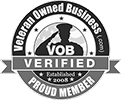As the end of the year approaches, taking time for an end-of-the-year financial check-up is critical. It involves a comprehensive review of your financial position. Assessment can help you understand how you spent your money throughout the year and guide you to make better financial decisions in the forthcoming year. Prepare by using this checklist as you work toward your financial objectives.
Review Your Budget
By revisiting your budget, you can compare and contrast your actual spending with the past budget entries for the year. Reviewing is a great way to help you understand where your money went, gauge if your spending habits have been healthy or not, and decide the areas where you need to cut back. Your budget can also provide insight into investing more in the coming year.
Scrutinize Your Debt
Don’t simply pay the minimum due on your debt; try to understand it. How much interest are you paying? Can you consolidate and refinance at a lower rate? Do you have a plan for paying off your debts? As part of your year-end check-up, thoroughly examining your debt may provide a strategic approach to managing it effectively.
Assess Your Investment Strategies
Another key area to review is your investment strategies; analyze how much you’re contributing and the performance of your investment portfolios. Also, consider if you need to rebalance your portfolio to help ensure you’re on track toward your short-term and long-term financial goals.
Update Life Insurance Policy Information
Life changes and your life insurance policy information should change along with it. Ensure that these vital documents reflect your current circumstances. If you have a significant life event, like marriage, divorce, or a newborn, it would be crucial to update your documents accordingly.
Review Employer-Sponsored Retirement Savings Accounts
As part of your year-end financial checklist, review your work retirement savings to help ensure you’re on track toward your goals. Now may be the time to increase your monthly contributions. Include employer-sponsored information in your financial plan to help enhance your retirement savings.
Examine Your Tax Situation
Understanding your year-to-date tax situation can prepare you for tax season and possibly mitigate your tax bite. Strategize with your financial and tax professional about optimizing deductions or tax credits you may qualify for. Consider last-minute year-end tax moves that could help lower your taxable income—for example, contributing more to your employer-sponsored retirement savings plan.
Evaluate Financial Goals
Last but not least, revisit your financial goals. Evaluate your progress towards your goals this year and set new ones for next year if necessary. Financial planning is always a great exercise whether you’re an independent professional, a small business owner, or a person eyeing a financially confident future.
As you wrap up the year, our financial professionals can help you execute this end-of-year financial checklist to help prepare you to take on whatever the next year brings.


